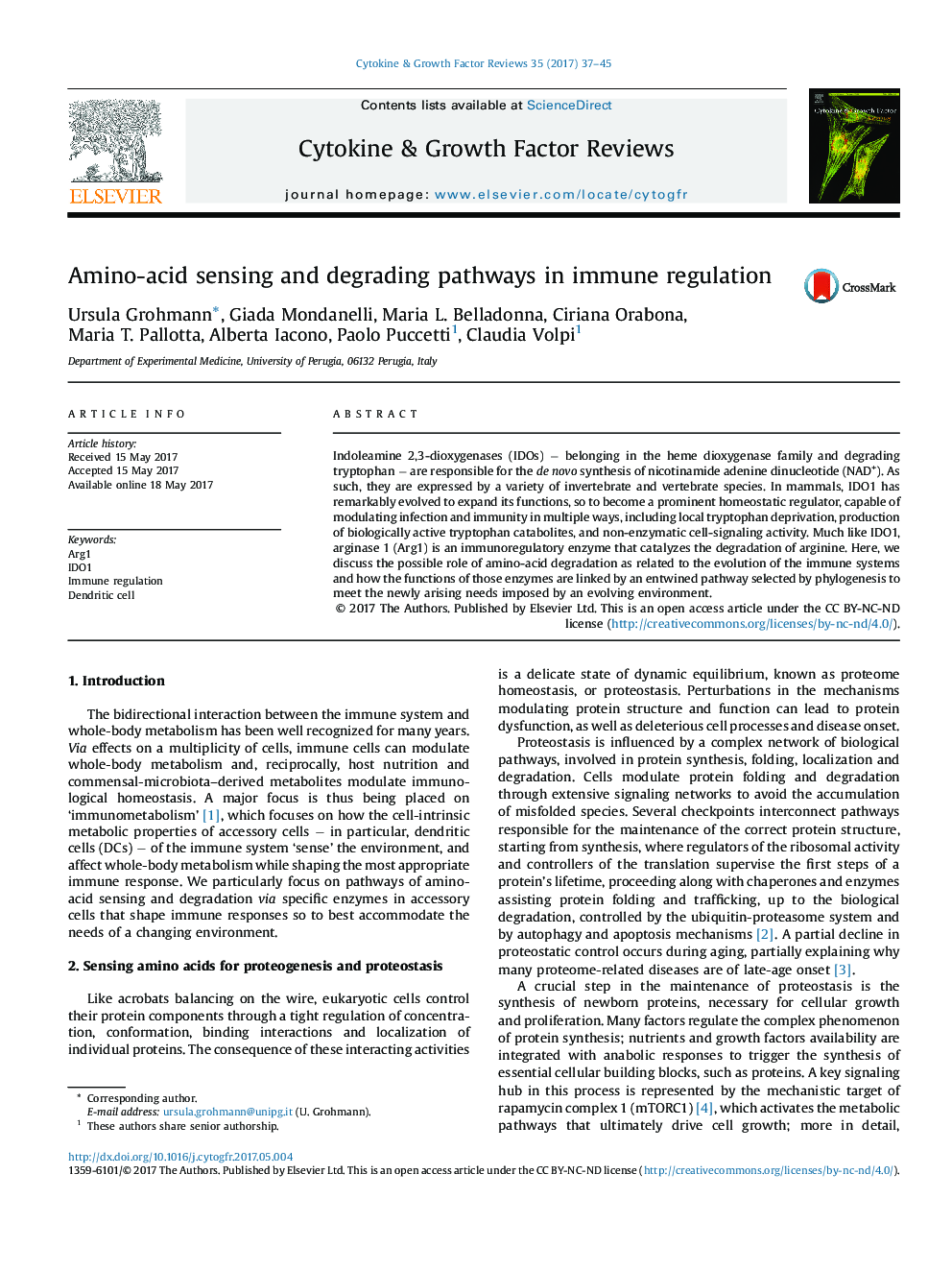| Article ID | Journal | Published Year | Pages | File Type |
|---|---|---|---|---|
| 5531229 | Cytokine & Growth Factor Reviews | 2017 | 9 Pages |
â¢Dendritic cells (DCs) can co-express Arg1 and IDO1, two potent immunoregulatory enzymes.â¢TGF-β but not IL-4 or IFN-g induces co-expression of Arg1 and IDO1 in DCs.â¢The TGF-β/Arg1/IDO1 pathway may represent an evolved immunoregulatory pathway co-opted by tumors.
Indoleamine 2,3-dioxygenases (IDOs) â belonging in the heme dioxygenase family and degrading tryptophan â are responsible for the de novo synthesis of nicotinamide adenine dinucleotide (NAD+). As such, they are expressed by a variety of invertebrate and vertebrate species. In mammals, IDO1 has remarkably evolved to expand its functions, so to become a prominent homeostatic regulator, capable of modulating infection and immunity in multiple ways, including local tryptophan deprivation, production of biologically active tryptophan catabolites, and non-enzymatic cell-signaling activity. Much like IDO1, arginase 1 (Arg1) is an immunoregulatory enzyme that catalyzes the degradation of arginine. Here, we discuss the possible role of amino-acid degradation as related to the evolution of the immune systems and how the functions of those enzymes are linked by an entwined pathway selected by phylogenesis to meet the newly arising needs imposed by an evolving environment.
